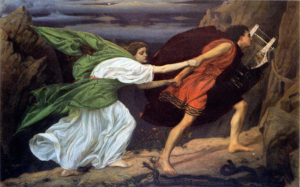… a person’s character is an aesthetic of being, as we have internalized the structure of our existence, the phenomenological reality …
Christopher Bollas
The word (aesthetics) roots itself in a gasp (aisthou), a sudden short intake of breath in the face of wonder or horror. Aesthetics begins in the startle of surprise, the breath caught, held in astonishment. Aesthetics arises from an epiphanic image, the full force of character revealed as in a work of art.
James Hillman
Character forces me to encounter each event in my peculiar style. It forces me to differ. I walk through life oddly. No one else walks as I do, and this is my courage, my dignity, my integrity, and my ruin.
James Hillman
Man only plays when he is in the fullest sense of the word a human being, and he is only fully a human being when he plays.
Schiller

This course is designed to invite exploration into analytic character as an aesthetics of being (Bollas) and becoming (Ogden). Development of analytic character will be approached as an emergence that unfolds through the intersubjective experience of the analytic couple. We discover ourselves and another through the challenges that inevitably arise from the friction of differences. The essence of character will be elaborated on and reinforced through mythic roots that make vibrant individual analytic processes. In this course, we will encounter and reflect on facets of character in the multiplicity of dream figures that form within a therapeutic venture and are brought into our clinical discussions, both in dreams and reverie. Perhaps “O” (Bion) arrives when the analytic couple (the we) together can await and recognize when the unknown potentialities that search for existence in the analytic space arrive.
image credit Artist: Edward Poynter (1836-1919), Orpheus Leading Eurydice Out of Hades, Private Collection. Courtesy of Wikimedia Commons. Public Domain.
Learning Objectives: Within the framework of this program, participants can expect to:
- Develop an appreciation for how dream characters may appear within the analytic field that reflect and embody elements of character co-authored by the analytic couple.
- Discover ways of invoking figurative representations when there are, as yet, voids or blank spaces waiting to be dreamt.
- Appreciate technically and somatically how to play with the multiplicity of characters co-created in the dream of the session.
- Further understand character as expressions of emotional forces stirred into being by the therapeutic encounter.
- Become attuned to the rhythmic currents underlying the narrative as it ‘plays’ out or is voiced both in the individual session and within the longer wave of the analytic process.
- Learn how to distinguish between non-dreams in which characters remain undeveloped and one dimensional from dreams that generate full bodied and expressive emotional integrity.
Registration closed.
For inquires please contact us
Readings:
Session 1, October 31: Blum, A., Goldberg, P. and Levin, M. (2023), Preface: Liner Notes and Chapter 1,The Bodies Way of Dreaming. In Here I’m Alive, the Spirit of Music in Psychoanalysis (pp. xi – 26)
Session 2, November 29: Hillman, James. (1999). Chapter 1, Longevity, In The Force of Character (pp. 2-28) Ovid: Calliope sings: Arethusa’s Story Book V: 572-641, Oedipus and the Sphinx is Book II: 759-795, Orpheus and Eurydice is Book X: 143-219, In Metamorphosis, A.S. Kline’s translation. https://ovid.lib.virginia.edu/trans/Ovhome.htm
Session 3, January 30: Peltz, Rachael. (2912), Ways of Hearing: Getting Inside Psychoanalysis. Psychoanalytic Dialogues, 22: 279 – 290
Session 4, February 27: Ferro, A. and Civitarese, G. (2915), The Secret of Faces. In The Analytic Field and Transformations (pp. 57-68)
Session 5, March 27: Ferro ,A.(2009). Transformations in Dreaming and Characters in the Psychoanalytic
Field. Int. J. Psychoanal., (90)(2):209-230
Session 6, April 24: Eigan, Michael. (2024), Chapter 1, Dead, Dread, Deflected and Little Bits of Grace. In Bits of Psyche (pp. 5-21)
Session 7, May 29: Alvarez, A. (2912). . Chapter 5, Play and the imagination. Where pathological play may demand a more intensified response from the therapist. In The Thinking Heart: Three levels of psychoanalytic therapy with disturbed children (pp. 147-161 + Appendix pp.187-189)
Session 8, June 26: Civitarese, G. (2024). Introduction, Chapter 4, Recognition and Conclusion. In On Arrogance (pp.115-134)
